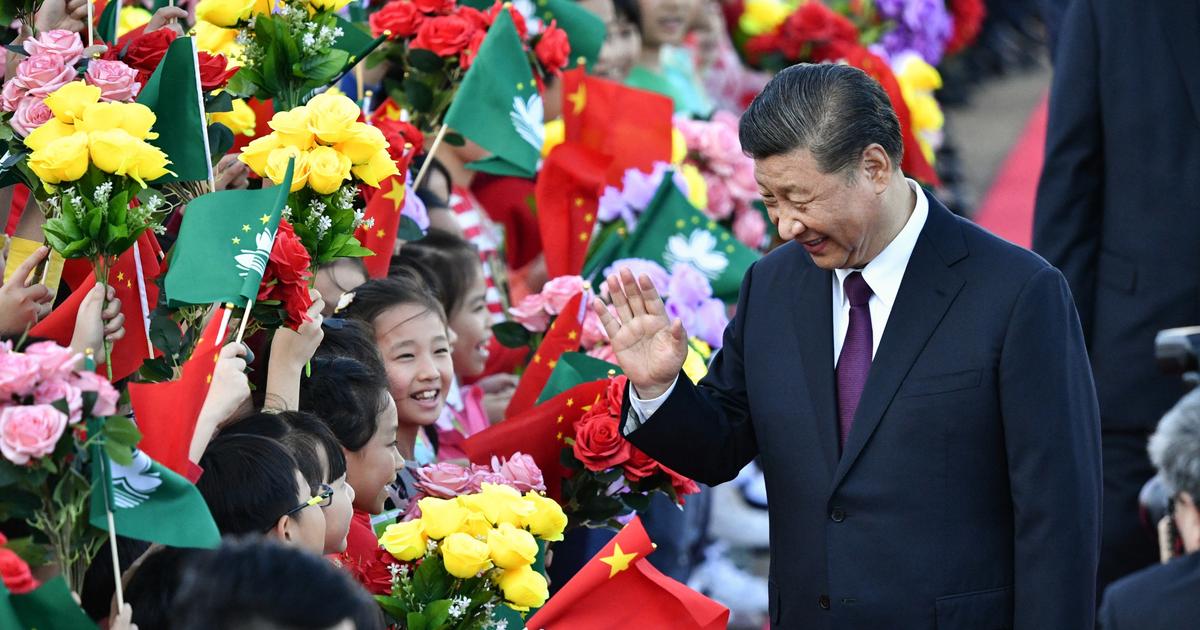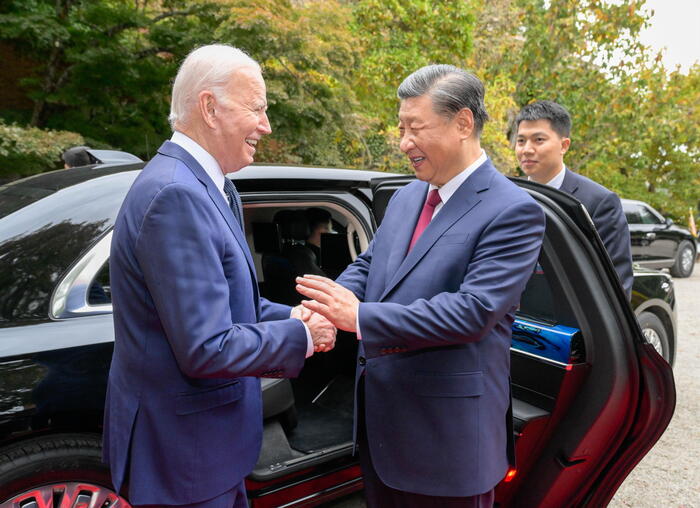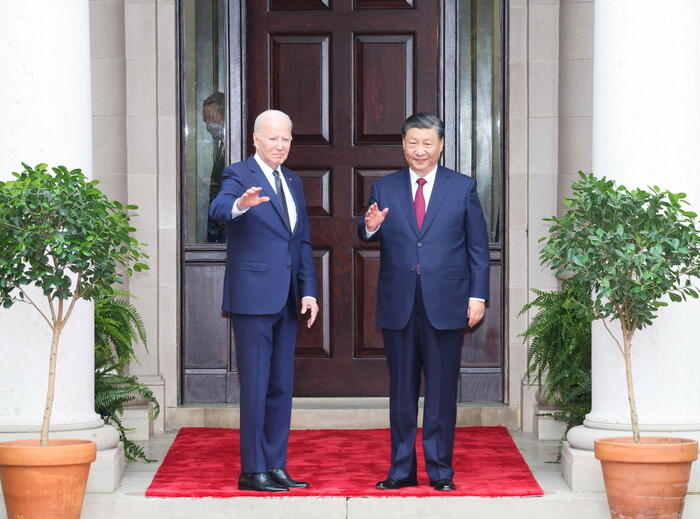Pierre-Antoine Donnet, former central editor-in-chief of Agence France-Presse, is the author of books on East Asia including
China the great predator
(editions de
l'Aube
, August 2021).
He participates in the book
The Chinese file, portrait of a country on the edge of the abyss
, a collective work published by Editions du
Cherche-Midi
on October 20, 2022.
FIGAROVOX. - For the first time since the 1960s, China saw its population decrease in 2022. It indeed lost 850,000 inhabitants, while official Chinese estimates did not foresee a drop before 2025, or even 2030. How can this drop be explained? demographic?
Pierre-Antoine DONNET. -
It really hadn't happened for a long time.
Between 1958 and 1962 there was what was called “the Great Leap Forward” in China, which ended in a total catastrophe, both economically and demographically.
In total, about 300,000 Chinese died of starvation during this period, and there were terrible scenes of cannibalism.
But since then, the population has only grown.
Several factors can be identified for this demographic decline.
This phenomenon is largely due to the one-child policy implemented by Deng Xiaoping in 1979, and even if it was abolished in 2015, society has kept the same model, the same codes.
The effects of this policy are therefore lasting.
There are also social reasons, many young women no longer want to be mothers, for the simple reason that raising a child in China is very expensive.
Young people have a vision of their future that differs radically from Chinese traditions and customs.
The consequences are serious on the external level, and the objective of becoming the leading economic power ahead of the United States is becoming increasingly remote.
Pierre Antoine Donnet
It should be noted that, for many experts, China has been losing inhabitants for several years, contrary to what the official statistics say.
In 2019, for example, there were significantly more deaths than births, but the Chinese government tried to hide this information.
And this demographic drop comes on top of many other negative signals.
There are demographic, economic, but also health problems.
The abandonment of all measures of the zero Covid policy has led to an explosion in cases of contamination and deaths.
Here too, the Chinese authorities hide the reality.
We see, by the satellite images, endless queues in front of the crematoriums which are submerged.
The wait is around three weeks in some cities, it's terrible.
What will be the geopolitical consequences of this demographic decline? Is this phenomenon likely to impact relations with its Indian rival, which should become the most populous country in the world in 2023?
I don't think there are any direct consequences on relations between China and India, however we can note other elements on the external level.
China risks losing a lot of foreign investors, because they rely on the presence of a large Chinese middle class to generate consumption needs.
But this middle class is weakening due to the demographic crisis.
The country could therefore lose its importance internationally.
From an economic point of view, will China be able to maintain its annual growth rate, despite a prolonged birth deficit? Is the "Chinese dream", the project of becoming the leading economic power ahead of the United States, compromised?
It is indeed a disaster on the economic level, because the aging of the Chinese population will generate a lack of manpower in companies, and therefore a decrease in industrial production.
In fact, for some time now, we have seen bad news piling up on the economic front.
Today, China's National Bureau of Statistics released a report that GDP growth was 3% in 2022. However, the target announced at the start of the year was 5.5%.
The year 2022 had the worst results for several decades.
In addition, we must not forget that this statistic comes from the Chinese government, some international institutions estimate that their growth is more like 2.5 or 2.7%.
It's a disappointment on the interior level,
because such a decline in growth generates unemployment, which is currently around 20% among young Chinese.
But the consequences are also serious on the external level, and the objective of becoming the leading economic power ahead of the United States is becoming increasingly distant.
It is even doubtful that China will ever achieve this goal, because the slump in growth is likely to last for a long time.
If one day Xi Jinping finds that power is slipping away from him, his only desperate move could be to declare an assault on Taiwan, in order to preserve his power.
Pierre Antoine Donnet
This demographic crisis is also creating pressure on pensions.
China, because of its high indebtedness, does not have the financial capacity to finance a real pension system.
Today, there is only a fledgling system, still being developed, while the number of people leaving the labor market and claiming aid is constantly growing, due to the aging of the population.
This is why the government has announced that the retirement age will be pushed back, in order to temporize, but this creates real dissatisfaction.
Can this demographic drop have consequences on Chinese expansionist desires, particularly towards Taiwan?
The fall in the birth rate, as well as the various crises that China is currently going through, are jeopardizing the power of President Xi Jinping.
The abandonment of the zero Covid policy, which he himself had initiated, constitutes a form of disavowal.
Moreover, during the 20th Congress, he wanted to impose himself as the Chinese number one in all areas, by eliminating all of his opponents, particularly within the Communist Party, which caused some anger.
It is therefore today very clearly weakened, and paradoxically this weakening causes real anxiety in Taiwan.
Because, if one day Xi Jinping finds that power is slipping away from him, his only desperate gesture could be to agitate an exacerbated nationalism on the one hand, and on the other hand to declare the assault on Taiwan,
in order to preserve his authority.
The Taiwanese authorities are very well prepared against a possible attack, but above all they fear such a desperate move.
Read also “Taiwan-Ukraine: what parallel between the maritime strategies of China and Russia?”
However, I think Vladimir Putin's difficulty in invading Ukraine gave the Chinese authorities pause.
And we can clearly see, today, that the conditions are not met for an invasion of Taiwan.
Xi Jinping, unlike Putin who made this crazy gesture, is more rational and thoughtful.
If today the assault were launched, the Chinese would lose the war for a whole series of reasons.
China joins Japan, Taiwan and South Korea among Asian nations with population loss. Can we speak, more broadly, of an Asian demographic crisis?
The problem of the aging population in Japan is quite similar to the Chinese problem, in both cases having children is extremely expensive.
But we observed very recently, in Japan, a rise in the birth rate, which has even become the highest in all of Asia.
This is due to a real supervision of the birth rate, and to an encouragement of households to have more children, thanks to monetary and fiscal aid.
In China, the state has also implemented birth rate policies, but they are clearly not sufficient, and the demographic imbalance between generations is such that it will be difficult to remedy whatever it does.







